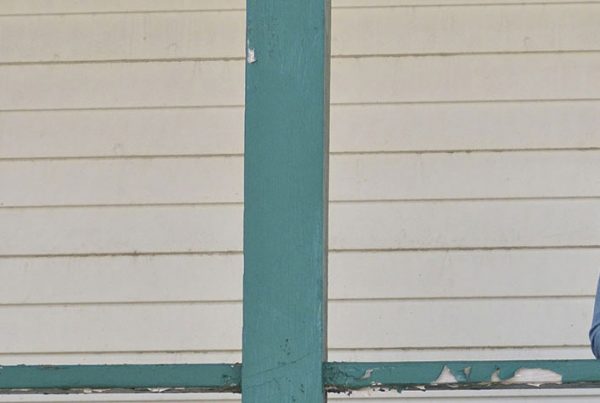Two and a half years ago, Ike and I drove across town once a week, for 10 weeks, to attend a birthing class. We wanted to learn as much as we could about the experience ahead, so we enrolled in a rigorous course. In that class we learned about everything–the stages of labor, how to cope with the pain, forms of medical intervention, potential complications, and much more.
Before I took that class, I’m ashamed to admit how little I knew. For instance, I didn’t know that the baby doesn’t just…fall out of you. I mean, I knew there was some pushing and rhythmic breathing involved, but most of what I knew came from Hollywood: as soon as you go into labor you better get to the hospital fast, because that baby will literally drop out of you at any moment!
In reality, labor takes a long time. In my case, a loooong time. I could have stopped for a nice steak dinner before going to the hospital, because Isaac was perfectly content to stay in there.
Something else I didn’t know? That labor has stages. It’s not all pushing, and it’s not constant pain. Instead, your body warms up to the birth in waves. The contractions grow closer and stronger as you near delivery, and the pain reaches a climax when your body shifts from dilating to pushing. This climax is the most difficult phase of labor, but it’s also the shortest and near the end. It’s called transition.
This week, I found myself thinking a lot about that phase of transition. Not because I’m have having another baby soon, but because the name seems so fitting for my current stage in life. How appropriate that the most painful part of labor is called transition, because really, isn’t transition painful?
For me, it certainly has been.
These last few months have been hard, period. On the one hand, Ike and I have witnessed some major answers to prayer–God has provided everything we needed and more. On the other hand, I’ve experienced a lot of loss. Now that Ike is working full-time, I have lost the freedom I enjoyed when we were both students. Now that I’m home with Isaac, I’ve lost a lot of margin to think, write, and create. Now that I’m at a new church where people primarily know me as ” “Ike’s wife,” “Isaac’s mom,” or simply “the pregnant lady,” I’ve lost a big chunk of my identity as a leader and a person in my own right.
My identity is in transition. And it hurts.
So, I’ve spent a lot of time thinking and praying about my identity, and I finally realized something:
There are a LOT of people in the Bible whose identities changed.
To be more specific, their identities were changed for them. By God.
Abram became Abraham, Sarai became Sarah, Simon became Peter, and Saul became Paul. Moses was an Egyptian prince who became a nomadic prophet. Esther was a lowly peasant who became a powerful queen. David was a shepherd who became king.
The Bible is full of stories of identity change, but I never gave it much thought until now. I never bothered to ask, “Was the transition hard for them?” As each individual stepped into his or her new identity, did they feel a sense of loss? Did they feel confused? Did they grieve?
My guess is that they did–even amidst the good transitions.
In Romans 12, Paul instructs us to “be transformed by the renewing of our minds,” and one way that we do this is by “offering our bodies as a living sacrifice.” That imagery would have been unmistakeable to Paul’s first century audience, a culture deeply familiar with the practice of sacrifice. To sacrifice something–an animal, to be specific–meant putting it to death. So when Paul tells us to offer ourselves as sacrifices, there is a sense in which he is instructing us to put some part of ourselves to death.
That “putting to death” is something you experience throughout your life in different seasons and stages. Your old self or identity dies, and it really can feel like a death. It’s a loss, and you grieve it like a death.
But here’s the good news: God doesn’t simply take your identity away. He exchanges it for something new. Something better.
Throughout your life, God puts to death your old identity to make you your truest self. The loss of identity is painful, but the loss makes way for the new–an identity that’s closer and closer to your perfect identity in Christ.
Yes, the transition is painful, but like labor, it comes right before the birth.
If you’re in a season of transition right now, I want to encourage you with that hope. Whether you’re newly married, newly single, a new parent, a new stay-at-home mom, an empty nester, living in a new city, working at a new job, suffering the loss of a job, or experiencing the loss of a dream, you are not alone in feeling the pain of transition. It is hard to change or lose your identity, because death of any sort is painful.
But know this: transition comes before birth. God isn’t just killing some part of you.
He’s birthing something new.
Sharon
Sharon






Sharon, girl, the transition into like, serious motherhood, is a tough one. I so appreciate your honesty and words about it. It seems that a lot of women who move from school/career into more full time mommy-ing really struggle with similar things to what you expressed in your post. And I love your comparison of that transition to labor transition. What a great picture of how God uses something often so hard and painful to birth something so precious and worthwhile. I think that is what has helped me during my own transition period…learning how much the Lord values these children He has entrusted to me, and that raising them is no lesser calling than what anyone else is doing for Him. Knowing the value He places on kids, and knowing the value He places on mothers, has been such a comfort during my questions of “what about me?” and “what about my ‘potential’?” My husband and I have talked at length about what we have termed the Myth of Unreached Potential, and how its a lie that mothering somehow means trading in my potential for something less. I think a lot of moms, especially, feel that they could have done something great or could be doing something greater (i.e. living up to their “potential”) instead of mothering. And that lie is paralyzing, depressing, and can sow roots of bitterness and anger that, if not resolved, can be so damaging to a family. (Mind you, I’m speaking mostly of stay at home moms who are transitioning into that role). However, recognizing, as you are, that the transition, while painful, is really an exercise in trusting God, relying on His strength, and watching Him bring to fruition something as lovely as the privelige of loving and raising this child (or children) that God loves and values to much. He values them above most anything, which is so counter cultural, even in the church. We put so many things above kids, above life. I’ve done it, for sure. But He has been gracious to teach me that He is a God of life, He is a God who loves and values children, and that it is such an amazing gift to be there as they grow. That transition has been tough for me, and it continues to be. I’m so glad I’m not alone in that! Praying for YOUR transition too. XOXO
Thanks, Katie! And thanks for sharing your own experience–I think that will encourage a lot of other women!
One more thought…I really resonated with what you said about being “Ike’s wife” or “Isaac’s mom”. Sometimes I think people just see me as a frazzled, tired mom who lives in yoga pants b/c she just doesn’t care enough to get dressed. Sometimes I want to shout, “No! There’s more to me than feeding kids and changing babies and sweeping the kitchen! I’m educated. I know about things. I read books that don’t have pictures and watch clever TV shows like Parks and Rec and Seinfeld. I like to eat good food and I make awesome homemade bread. I love the Lord and spent a lot of years studying His word and ways. There’s more to me! There’s more!” Then the Lord asks, “What if that’s all you are…a mom? What if all that other stuff didn’t exist? Would being a mom and a wife be enough for you if that’s what I have called you to be?” Well of course, yes. But that’s a hard yes to swallow sometimes. Praying for grace for His calling to be big enough for me.
Thank you for very aptly writing about life’s transitions. I turned 56 this year and looking back so many difficult periods of life were about just that – identity shifts….shifts I thought I didn’t want or was not ready for. But God is always at work in our lives and our churches and change is required for growth. Still, welcoming the “new” and letting go of the “old” is SO hard. God has given you amazing insight on this – thank you for sharing it 🙂
Hi Sharon,
I. Loved. This. Thank you for writing this post! It’s so timely and puts into words so beautifully what I’ve been experiencing during this season of transition in my life. It is wonderful to have someone put a voice to it. So thank you for doing that! I loved how you explained, “My identity is in transition. And it hurts.” Wow! That’s it…change, whether good or bad is painful. But like you, I’m looking forward to what will be birthed from this time in my life.
God bless you and your family!
Ashley
Sharon, I have been in this place for the past several months, too! My husband is an Associate Pastor and he took a position at a different church in April. Before then we were at the church I had grown up in, having met when he took a job there. My identity has completely changed at this new church, I am “TJ’s Wife” and my son’s mom. It was just a few short weeks ago that I was actually able to lead a women’s discipleship group again, something that was a constant before.
But I have also discovered that this new identity has allowed me to serve in other areas of the church and not serve in areas I had served before. It’s freeing really and exciting to see the new person Christ is molding me into! I pray for you and this transition period, that it be less painful but completely beautiful!
Love this. My identity has definitely changed a TON in the last few years. Thankfully it’s been a very good change!